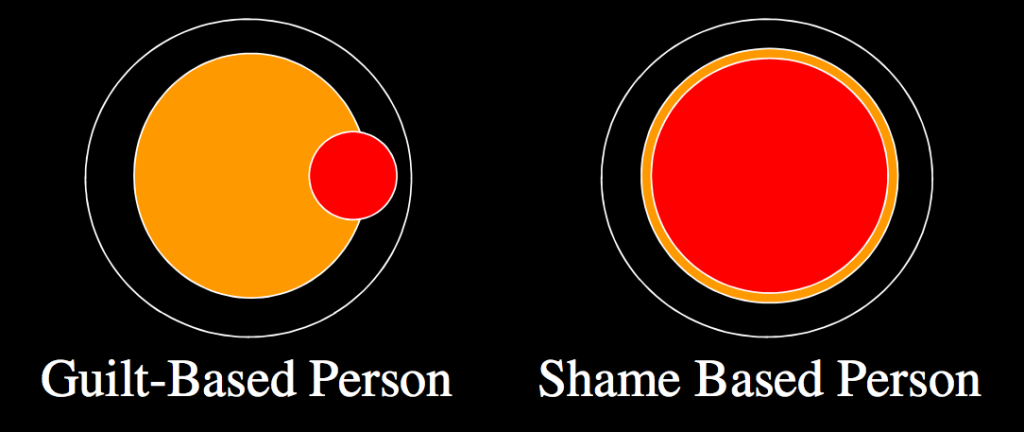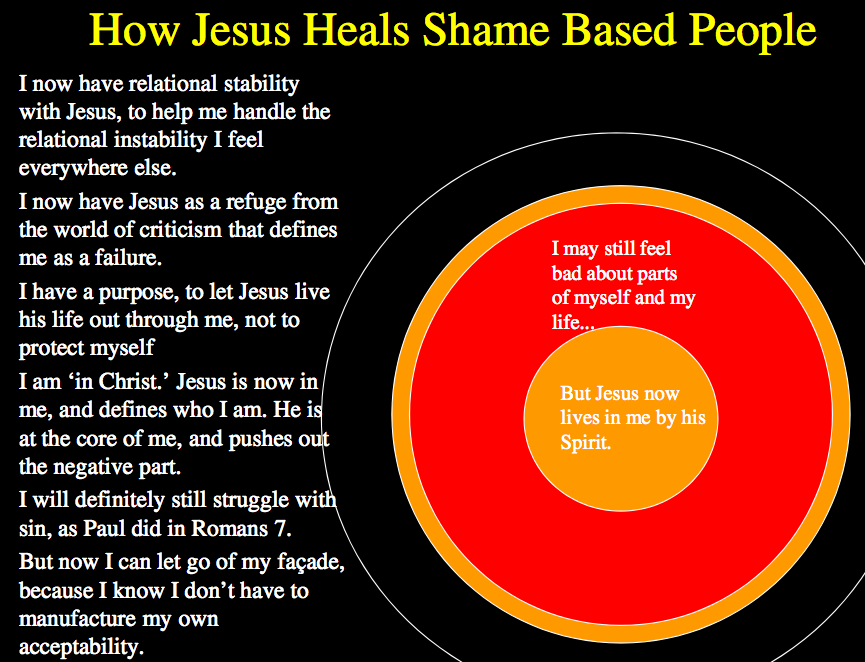How Jesus Atones For My Shame
Guest Mako A. Nagasawa is a campus minister at Harvard and Boston College with the New Humanity Institute, and founding director of New Humanity Institute.
“Don’t you know how much I sacrificed for you???” Those words shaped my sense of self, duty, and how others experienced me. Who said that? My parents. Hearing it made me feel mixed. On the one hand, I was grateful for their sacrifices. I certainly benefited. On the other hand, I had my doubts about their motivations being self-sacrifice pure and simple. (If they came to the U.S. for more money, didn’t that benefit them, too?) And it sounded like I was mostly (or only) a burden to them. Then, when I gave my life to Jesus when I was 17, I noticed God saying that too. Or at least I thought He did. Because some Asian-American Christians would say, “Don’t you know how much GOD sacrificed for you?”
The words coursed through a well-worn groove in my heart. They produced a joyless obedience in me. I felt psychologically and spiritually maneuvered into owing an unpayable debt. And just as I quietly doubted the purity of my parents’ motivations, I doubted God’s. He sounded awfully narcissistic. And I felt like even more of a burden. My sense of shame about who I was deepened. A guilt-based person views themselves as generally good (orange circle in left image), with a few bad actions on the side (the red dot). But a shame-based person (on the right) perceives themselves as essentially shameful (large red circle), so works to maintain a façade of goodness (orange layer). This is why the language of “sacrifice” compounded my shame.

Then a few years later, when I was asked to preach Romans 6:1-11, I floundered and fumbled. I expected Paul to say, “Shall we sin that grace may abound? By no means! …Don’t you know how much Jesus/God sacrificed for you?” But Paul was not cultivating the gratitude or the debt-obligation motivation.
He did not say, “Jesus died instead of you.” Rather, he said, “Jesus died, and you died with him; he rose, and you rose with him.” Jesus didn’t die instead of me. He died ahead of me. Paul was cultivating a sense of identity–identity in Christ–out of which life flowed. I didn’t know how to preach that text. I was inspired to study Paul’s language of motivation, and found that identity in Christ was central to him. Even though gratitude was a command in itself, he never uses gratitude as a motivation for more obedience. That was liberating. I no longer felt like God saw me as a burden. I knew He treasured me, because He wanted to recover His image in me, clean it off, and shine through me by joining Himself to me by the Spirit.
My motivation began to be one of deep joy. Years later, the final puzzle piece fell into place. I was reading Irenaeus and Athanasius, discovering what the early church believed about atonement. They said that Jesus shared in our diseased human nature so we might share in his healed human nature. His death was not a punishment that he deflected from us. Instead, he died to do what no other human being could do. Jesus utterly condemned and destroyed the sinfulness in human flesh (Rom 8:3). So when Jesus rose, he had a God-soaked, God-drenched new humanity, which was purified from sin and joined perfectly to the Father by the Spirit. 
Aha! Jesus was a medical substitute, who acts like a dialysis machine. He takes our impurities. He gives us his purity. That’s why we need to be joined to Jesus by his Spirit. Then I realized God didn’t shame me one bit. He honored me – the true me. In the person of His Son, God accomplished for me what I could not: cleanse myself of all that is wrong and broken. And in the person of His Spirit, God intimately and personally shares with me what He accomplished in Jesus. No sense of burden. No relational distance. No narcissism on God’s part. Instead, I know Jesus died and rose to fix the deepest problem in our human nature, and then join himself intimately to us, by his Spirit. Jesus changes us from the inside out (see diagram above). He shared in our shame, so that we might share in his honor.
Images from here, used with author’s permission. Also read, “10 Ways the Cross Atones for Shame” by Mark D. Baker. This post continues our series “Honor Christology.”

What an excellent article. I just finished reading “The Chrysanthemum and the Sword” by Ruth Benedict. While I still could not clearly explain the difference between “on” and “giri”, I do clearly see how our western presentation of the Gospel as how much Jesus sacrificed for us could be understood as an unbearable burden of obligation rather than a life-giving message of freedom.
Your illustration with the circles was so true to the way I understand the Bible. “Inviting Jesus into my heart” means that Christ enters the very innermost core of my being, and heals/cleanses/changes me from the inside outward. (and I was raised on a strong diet of guilt vs. righteousness)
Deflected punishment is certainly supportable by the New Testament text, but I can see how a narrow focus on Christ bearing the penalty for our sins, and insisting it is the only way to understand the atonement can become a barrier to communicating the Salvation Christ offers. Healing our diseases is also in the sacred text.
Thank you Mr. Nagasawa for sharing your testimony. We need to hear this to open a wider understanding of how God speaks His love to people.
Great observations, really appreciate it. Like those diagrams too. But to blanketly make it either/or and say Jesus didn’t die for us and his death was not an substitutionary bearing/absorption/deflection of our punishment… you’ll have to show me what Bible you read that in.
Thanks for this post-
I had visited the Nagasawa website before but had not seen these diagrams which are really great. The source document that the diagrams are from was well worth going to as well. It highlighted to me a connection I hadn’t realised before in relation to the high guilt emphasis in the West – that we can assume that such an emphasis came about through an over-emphasis in guilt by the church, but in fact the introduction of Secular Psychology and its view that man is basically good with just a little bit of bad from bad things that happen to him, has maybe added a distorted but further emphasis to it over the past 100 or so years.
I also very much liked the emphasis of identity ‘in Christ’ as a key factor to what salvation is all about.
And again, it is just always so good to hear a personal story of how honour and shame have factored in a person’s life and understanding of the gospel.
Thanks Sandra for bringing those points to the surface. I agree that personal stories/testimonies are great windows into truth.
Yes, thank you.
Is it not still also true that Jesus died instead of me though? Romans 5 vs. 6-8, Colossians 2 vs. 13-15.
I suppose the problem must be that people sometimes don’t make us feel too great when they sacrifice for us, but God as you say works ahead of time to bear our burdens, and helps us to feel that this has happened also by granting us peace, joy and righteousness in the Holy Spirit.
I have to say I wouldn’t surrender substitutionary atonement for feelings, but neither would I consider the atonement to be so objective, that we can’t feel it. That would seem to be a philosophical imposition and not part of the good news, that Christ is in me and I am in Christ, and that he took our died for me before I could do or feel anything!
Thanks everyone for engaging with the post. For those who would like further explanation of why I believe in the early church’s “medical substitutionary atonement theory” (especially Irenaeus and Athanasius) and not the Lutheran-Calvinist “penal substitutionary atonement theory”, please see the following links:
* This blog post is a large expansion on what I wrote above, including why Jesus’ quotation of Psalm 22 is a statement about being forsaken *to the Gentiles* and not in an absolute sense. https://newhumanityinstitute.wordpress.com/2015/10/12/interpreting-jesus-and-atonement-practical-issue-9-is-god-an-asian-parent-what-language-of-motivation-does-god-use/
* This paper is a treatment of Isaiah 53, in the context of Isaiah as a whole, in Matthew’s Gospel, and Paul’s use of Isaiah 59 in Romans 11. I put forward a case for Isaiah 53 being a demonstration of “medical substitution” and not “penal substitution”. http://nagasawafamily.org/isaiah.53.punishment.pdf
* I am working through the early church’s view of atonement, rebutting Jeffery, Ovey, and Sach’s claim that anyone believed in penal substitution back then: http://nagasawafamily.org/article-penal-substitution-vs-ontological-substitution-historical-comparison.pdf. I’ve done a decent amount of work on Ignatius, Irenaeus, and Tertullian. I’ve also collected very important quotations from Athanasius, Gregory of Nyssa, Augustine, and others.